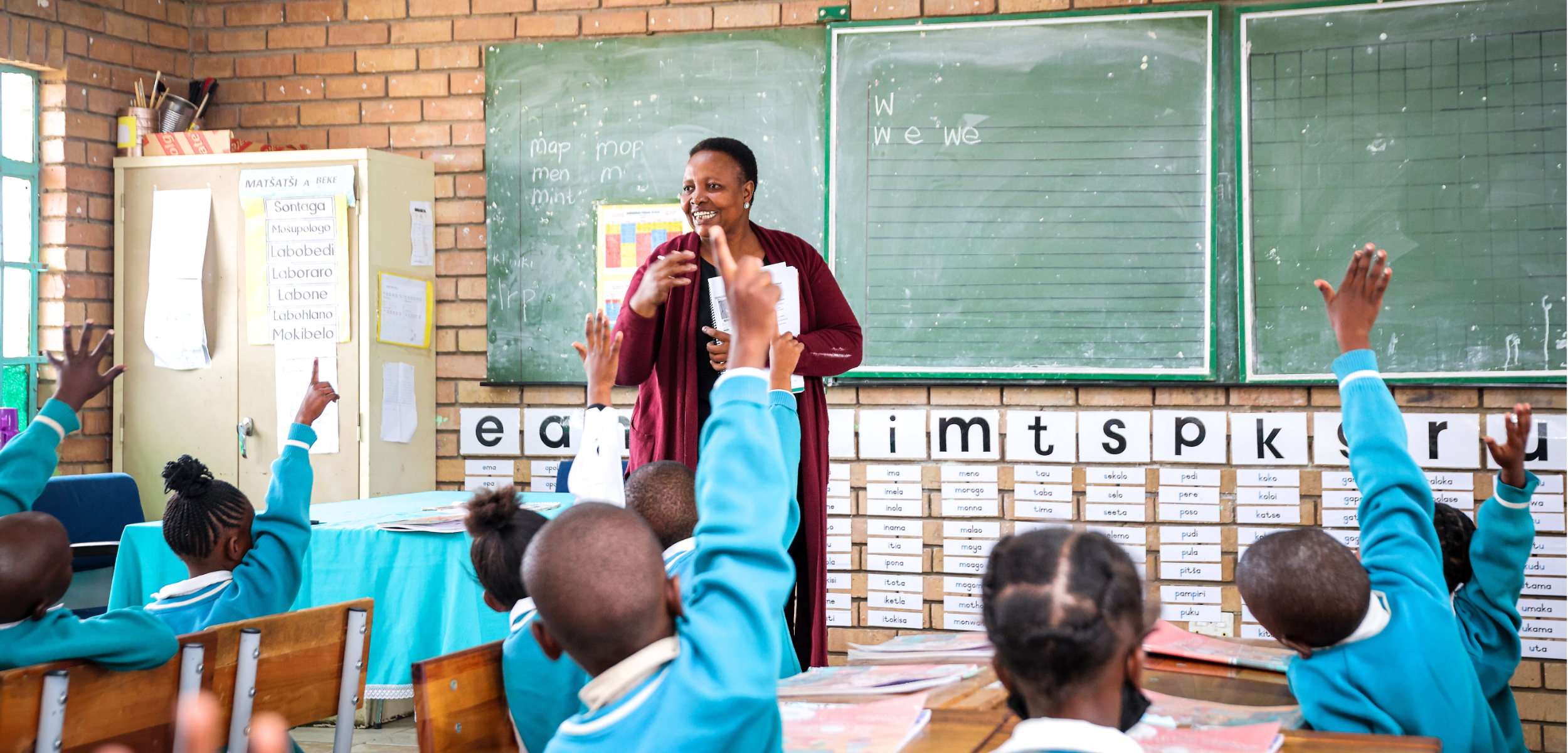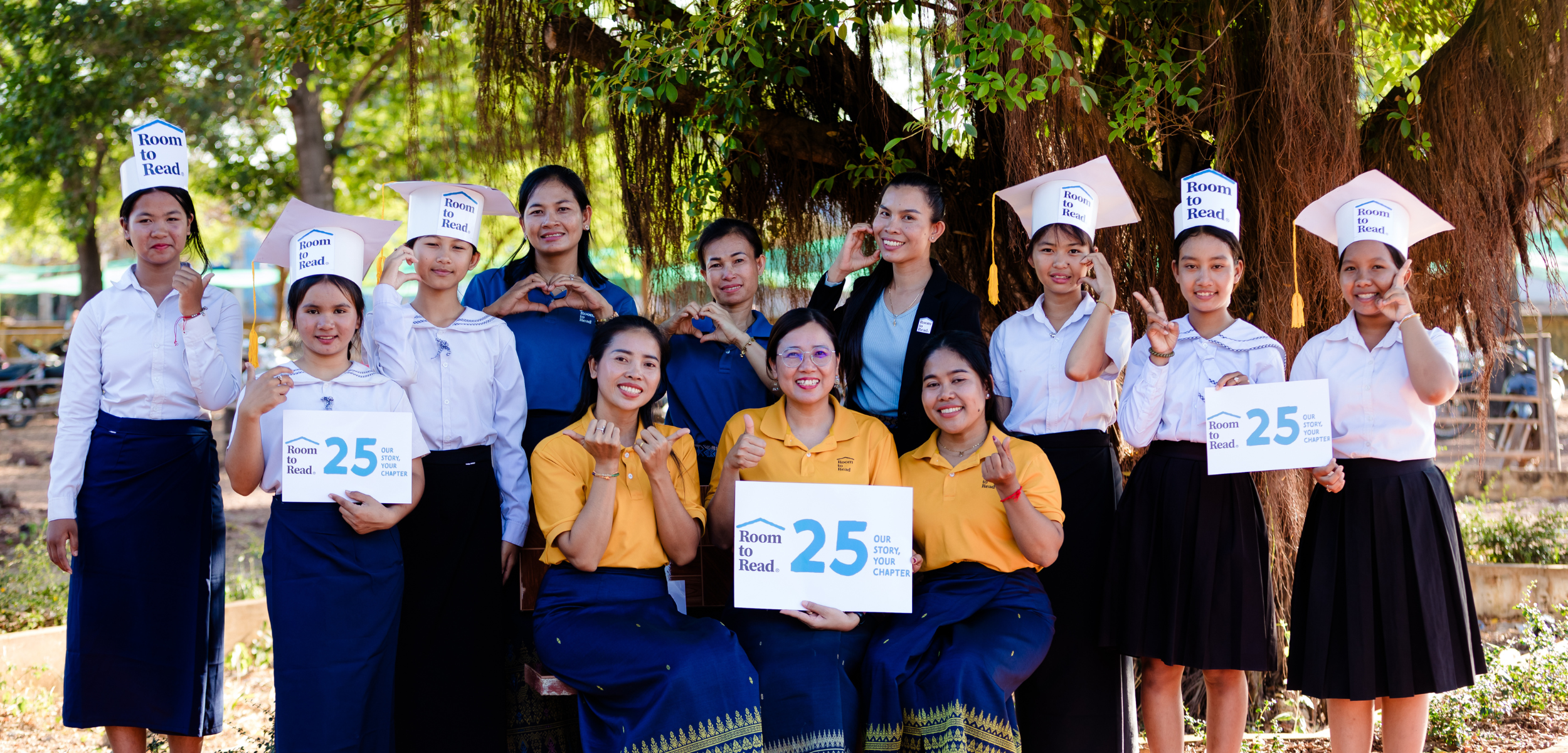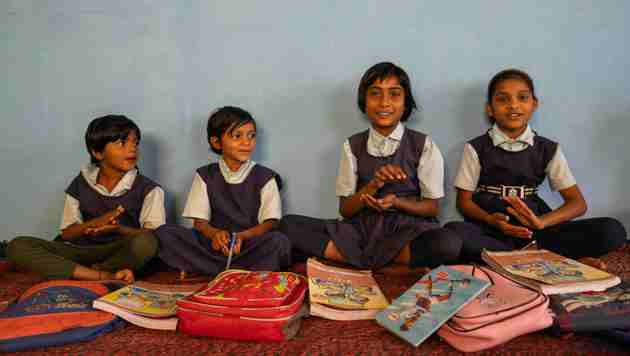A renewed sense of responsibility: Reflections from three global conferences
May 27, 2025

By Heather Simpson
Chief Program Officer
Room to Read
In recent months, I had the opportunity to attend three significant global gatherings in our field: the Comparative and International Education Society (CIES) Conference in Chicago, the Yidan Prize Conference hosted this year at Arizona State University, and the Skoll World Forum in Oxford. Each of these convenings brought together diverse, passionate leaders committed to the present and future of education, innovation and global development. They offered rich perspectives, moments of both sobering reality and inspiring optimism, and a collective sense that, while the world is changing rapidly, our mission at Room to Read is more vital than ever.

CIES 2025: The power of print in a digital world
At CIES in Chicago, Room to Read had a strong and inspiring presence. Our team contributed to 10 panels across the week, sharing insights on a wide range of topics including literacy development, gender equality, systems change and evidence-based scaling strategies. I had the honor of presenting on a panel titled “Books in a Digital World,” where we explored the enduring impact of hard copy books in fostering deep learning. The conversation struck a chord with many attendees — especially the idea that printed books remain essential, even for children surrounded by screens in their daily lives.
Colleagues shared insights on recent research on Room to Read’s literacy interventions with teachers across countries. For example, in South Africa, we are seeing encouraging progress: teachers are demonstrating stronger classroom practices, and those practices are translating into improved learning outcomes for students. At the same time, teachers’ knowledge of literacy concepts and instructional strategies is growing even more rapidly than their observed changes in classroom behavior. These findings are not unusual. Deepening understanding often precedes visible shifts in practice. What these trends tell us is that knowledge alone isn’t enough. Focused, sustained coaching plays a crucial role in bridging the gap between knowing and doing, helping educators translate new insights into meaningful, day-to-day support for their students. This insight reinforces the need for innovative solutions for teacher coaching.
Teacher coaching was in fact a topic in another panel discussion at the conference, during which our Room to Read team member shared insights on our work exploring the power of AI-driven coaching to help teachers translate knowledge into effective classroom practices.

Across our panels, Room to Read's evidence base and practical experience were met with great appreciation. Colleagues were eager to learn how our programs continue evolving while staying rooted in strong evidence and informed by local contexts and cross-border insights.
Yet, despite this intellectual vibrancy, CIES carried a somber undercurrent. Given the sudden reductions to education funding, several long-standing partners were notably absent, and those present were facing significant operational challenges. The uncertainty was a poignant reminder of how fragile progress can be without ongoing global education investment.
The Yidan Prize Conference: Learning in the age of AI
In contrast, the Yidan Prize Conference at Arizona State University struck a more curious and future-facing tone. A number of conversations centered on artificial intelligence: its promise, its perils and its implications for education systems around the world. Experts from education, technology and policy created palpable energy wrestling with two key questions:
- How can we harness AI to improve learning outcomes for all? and
- How do we prepare students, all students, not only the students learning in the most well resources schools, for a future where AI is part of daily life?
Room to Read’s commitment to foundational learning — literacy and life skills — felt more relevant than ever in these discussions. AI may change many things, and the ability to read critically, think independently and navigate ethical questions will only grow in importance.
As one speaker noted, “AI will not replace teachers, but teachers who understand AI may well shape the future.”
These discussions prompted me to reflect on Room to Read’s own explorations at the intersection of technology and learning. We are actively experimenting with how AI can enhance the professional development of educators, including training models to provide meaningful, personalized coaching at scale. We’re also exploring ways to leverage AI to streamline our book publishing processes, enabling us to produce high-quality, culturally relevant content with greater speed and efficiency. These innovations are part of our broader commitment to harnessing technology in the service of scaling deeper learning and strengthening education systems.
Our work ensures that the next generation can meet this future with knowledge, skills, resilience and confidence.
The Skoll World Forum: Hope and resolve amid geopolitical shifts
Finally, the Skoll World Forum in Oxford offered a powerful convergence of global changemakers — philanthropic leaders, social entrepreneurs and systems thinkers — all grappling with the implications of today’s turbulent geopolitical and funding landscape. Like many organizations, attendees were feeling the effects of reduced foreign assistance and shifting donor priorities. Yet, instead of resignation, there was resolve.
The Forum offered a rare mix of honesty and optimism as well as deep acknowledgment that the challenges we face, including climate displacement, conflict inequity, are complex and intersecting. But, so too is our collective capacity to respond.
Over the course of the week, I was struck with how strongly the Room to Read brand, mission and expertise resonates with so many. I was able to connect with some current and potential partners including: Equimundo, who works with us to design evidence-based work with adolescent boys, Save the Children, who has partnered with Room to Read to improve literacy in both Laos and the United States, and Breakthrough, an organization collaborating in the collective call to improve girls’ education opportunities.
We are all keen to find new ways to deepen our collaboration and forge new opportunities to join together in work.

At the Skoll World Forum Conference, I was proud to see how Room to Read’s mission, to nurture children’s foundational literacy and life skills through a dignified, gender-equal approach, resonated strongly with the individuals I engaged with. The values that guide Room to Read’s work, collaboration, action, respect, education and scale, were echoed throughout the conference sessions, reinforcing the urgency and relevance of our efforts to lead systems-level change in education. Conversations reaffirmed that now is the time to double down on effective, proven solutions that create lasting change. We need to invest in what works and scale with care, collaboration and a sense of urgency.
A renewed sense of responsibility
As I reflect on these three conferences, one thing is clear: Room to Read’s mission is more essential than ever.
The global landscape is shifting. Some of our trusted partners are facing existential threats, and new collaborators may emerge with fresh ideas and aligned purpose. In this time of change, we must remain agile, bold and grounded in our values.
We are proud implementers and leaders in global education. We have the tools, the track record, and the responsibility to serve more children more quickly and more effectively, support more communities, evolve as a trusted partner and create more positive ripples of change in the world. The moment calls for clarity and courage. I am so proud to be part of this Room to Read team and was truly honored to represent our shared work during these convenings of leaders and thinkers around the world. 



